Rapporti ISTISAN 09/49 ISTITUTO SUPERIORE DI SANITÀ Ageing ...
Rapporti ISTISAN 09/49 ISTITUTO SUPERIORE DI SANITÀ Ageing ...
Rapporti ISTISAN 09/49 ISTITUTO SUPERIORE DI SANITÀ Ageing ...
You also want an ePaper? Increase the reach of your titles
YUMPU automatically turns print PDFs into web optimized ePapers that Google loves.
<strong>Rapporti</strong> <strong>ISTISAN</strong> <strong>09</strong>/<strong>49</strong><br />
The activities of the experiential processes are:<br />
– Consciousness raising<br />
Recalling information about the problem and creating new awareness of the problem, e.g.<br />
I recall information, I have heard or read about the consequences and cures of obesity.<br />
Interventions that can increase awareness include feedback, confrontations,<br />
interpretations, and media campaigns.<br />
– Social liberation<br />
Increasing of social opportunities or alternatives that makes it easier to change one’s<br />
behaviour, e.g. advocacy, empowerment procedures and appropriate policies can produce<br />
increased opportunities for health promotion interventions, such as salad bars in senior<br />
clubs, easy access to diet consultations.<br />
– Dramatic relief<br />
Emotional expression and reaction if the problem is mentioned. Experiencing the<br />
negative emotions (fear, anxiety, worry) that go along with unhealthy behavioural risk;<br />
e.g. I react emotionally to articles about obesity elder people who died due to heart attack.<br />
– Self-re-evaluation<br />
Cognitive and emotional/affective assessment of one’s self-image with or without a<br />
particular unhealthy habit. Acceptance of the problem and the necessity to change values,<br />
e.g. I feel satisfied of myself, as an active person.<br />
– Environment re-evaluation<br />
Considering the problem in the context of the individual’s social and physical world, e.g.<br />
I consider the view that I cause additional problems to my family who will have to take<br />
care about me when I am getting more health problems due to my obesity.<br />
The behavioural processes consist of:<br />
– Self-liberation<br />
Self-liberation is both the belief that one can change and the commitment and<br />
recommitment to act on that belief e.g. I make commitments to close people that I will<br />
change the diet and improve physical activity.<br />
– Helping relationships<br />
This activity combines caring, trust, openness, and acceptance as well as social support<br />
for healthy behaviour change. Rapport building and counsellor calls can be source of<br />
social support.<br />
– Stimulus control<br />
Things are removed that reminds on unhealthy habits and prompts are added for healthier<br />
alternatives. Avoidance, and self-help groups can provide stimuli that support change and<br />
reduce risks for relapse.<br />
– Counter conditioning<br />
Substituting healthy behaviours and cognition’s for unhealthy ones. Relaxation, assertion,<br />
and positive self-statements are strategies for finding positive substitutes.<br />
– Contingency management<br />
Increasing the rewards for positive behavioural change, contingency contracts, overt and<br />
covert reinforcements, and group recognition are procedures for increasing reinforcement.<br />
34



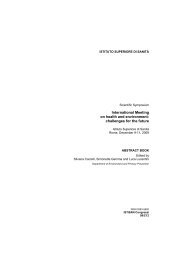



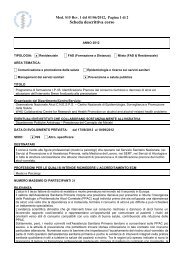
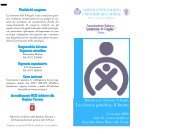
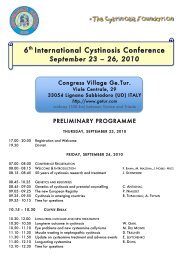
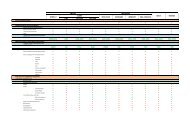
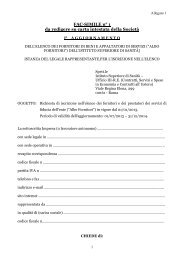

![Emilia Romagna [PDF - 175.10 kbytes]](https://img.yumpu.com/23556597/1/184x260/emilia-romagna-pdf-17510-kbytes.jpg?quality=85)

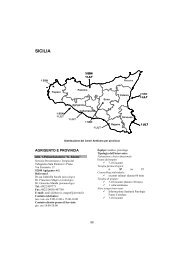

![Istisan Congressi N. 66 (Pag. 1 - 81). [PDF - 2021.12 kbytes] - Istituto ...](https://img.yumpu.com/23556493/1/171x260/istisan-congressi-n-66-pag-1-81-pdf-202112-kbytes-istituto-.jpg?quality=85)